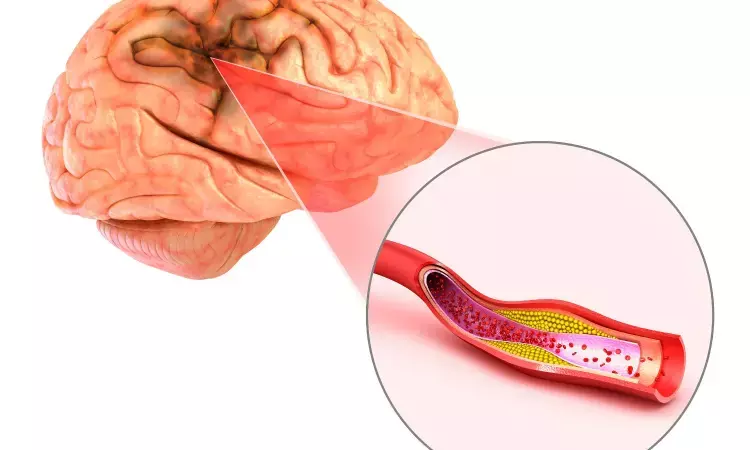- Home
- Medical news & Guidelines
- Anesthesiology
- Cardiology and CTVS
- Critical Care
- Dentistry
- Dermatology
- Diabetes and Endocrinology
- ENT
- Gastroenterology
- Medicine
- Nephrology
- Neurology
- Obstretics-Gynaecology
- Oncology
- Ophthalmology
- Orthopaedics
- Pediatrics-Neonatology
- Psychiatry
- Pulmonology
- Radiology
- Surgery
- Urology
- Laboratory Medicine
- Diet
- Nursing
- Paramedical
- Physiotherapy
- Health news
- Fact Check
- Bone Health Fact Check
- Brain Health Fact Check
- Cancer Related Fact Check
- Child Care Fact Check
- Dental and oral health fact check
- Diabetes and metabolic health fact check
- Diet and Nutrition Fact Check
- Eye and ENT Care Fact Check
- Fitness fact check
- Gut health fact check
- Heart health fact check
- Kidney health fact check
- Medical education fact check
- Men's health fact check
- Respiratory fact check
- Skin and hair care fact check
- Vaccine and Immunization fact check
- Women's health fact check
- AYUSH
- State News
- Andaman and Nicobar Islands
- Andhra Pradesh
- Arunachal Pradesh
- Assam
- Bihar
- Chandigarh
- Chattisgarh
- Dadra and Nagar Haveli
- Daman and Diu
- Delhi
- Goa
- Gujarat
- Haryana
- Himachal Pradesh
- Jammu & Kashmir
- Jharkhand
- Karnataka
- Kerala
- Ladakh
- Lakshadweep
- Madhya Pradesh
- Maharashtra
- Manipur
- Meghalaya
- Mizoram
- Nagaland
- Odisha
- Puducherry
- Punjab
- Rajasthan
- Sikkim
- Tamil Nadu
- Telangana
- Tripura
- Uttar Pradesh
- Uttrakhand
- West Bengal
- Medical Education
- Industry
Oral Factor XIa Inhibitor Milvexian Fails to Demonstrate Impressive Results for Preventing Stroke

People with factor XI deficiency have lower rates of ischemic stroke and infrequent spontaneous bleeding, presenting an essential role in thrombosis than in hemostasis. Milvexian, an oral small-molecule inhibitor of activated factor XI, may reduce the risk of non-cardioembolic ischemic stroke without increasing bleeding risk when added to standard antiplatelet therapy.
A recent study published in the Lancet Neurology concluded that Milvexian did not significantly reduce the composite outcome of ischaemic stroke or covert brain infarction when added to dual antiplatelet therapy and did not increase the risk of significant bleeding.
This study aimed to estimate the dose-response of milvexian for recurrent ischemic cerebral events and major bleeding in those with recent ischemic stroke or TIA (transient ischemic attack).
AXIOMATIC-SSP was a phase 2 dose-finding trial conducted at 367 hospitals across 27 countries. Eligible participants aged 40 or older with acute ischemic stroke or high-risk TIA were randomly assigned to receive one of five doses of milvexian or placebo twice daily for 90 days. All participants received clopidogrel and aspirin daily for the first 90 days. The primary endpoint was the composite of ischemic stroke or covert brain infarct at 90 days, assessed with MRI and analyzed with MCP-MOD. The main safety outcome was major bleeding at 90 days, evaluated in all participants who received the study drug.
Key findings are:
· 2366 participants were randomly allocated to placebo, milvexian 25 mg once daily, or twice-daily doses of milvexian 25 mg, 50 mg, 100 mg, or 200 mg
· The median age of participants was 71 years, and 859 were female.
· In patients with recent ischemic stroke or transient ischemic attack (TIA), randomization to any of five doses of milvexian did not significantly decrease the combined incidence of ischemic stroke or covert brain infarct on MRI at 90 days compared to placebo.
· Model-based relative risk estimates for milvexian versus placebo were 0.99 for 25 mg once daily, 0.99 for 25 mg twice daily, 0.93 for 50 mg twice daily, 0.92 for 100 mg twice daily, and 0.91 for 200 mg twice daily.
· No significant dose response was observed for the primary efficacy outcome, nor was one observed for major bleeding
· Five deaths happened during the study, four unrelated to the drug.
Our study has informed the design of a phase 3 trial for Milvexian's prevention of ischaemic stroke in patients with acute ischaemic stroke or TIA, they added.
Bristol Myers Squibb and Janssen Research & Development funded the study.
Reference:
Sharma, M. et al. Safety and efficacy of factor XIa inhibition with milvexian for secondary stroke prevention (AXIOMATIC-SSP): a phase 2, international, randomized, double-blind, placebo-controlled, dose-finding trial. The Lancet Neurology, 23(1), 46–59. https://doi.org/10.1016/s1474-4422(23)00403-9
BDS, MDS in Periodontics and Implantology
Dr. Aditi Yadav is a BDS, MDS in Periodontics and Implantology. She has a clinical experience of 5 years as a laser dental surgeon. She also has a Diploma in clinical research and pharmacovigilance and is a Certified data scientist. She is currently working as a content developer in e-health services. Dr. Yadav has a keen interest in Medical Journalism and is actively involved in Medical Research writing.
Dr Kamal Kant Kohli-MBBS, DTCD- a chest specialist with more than 30 years of practice and a flair for writing clinical articles, Dr Kamal Kant Kohli joined Medical Dialogues as a Chief Editor of Medical News. Besides writing articles, as an editor, he proofreads and verifies all the medical content published on Medical Dialogues including those coming from journals, studies,medical conferences,guidelines etc. Email: drkohli@medicaldialogues.in. Contact no. 011-43720751


